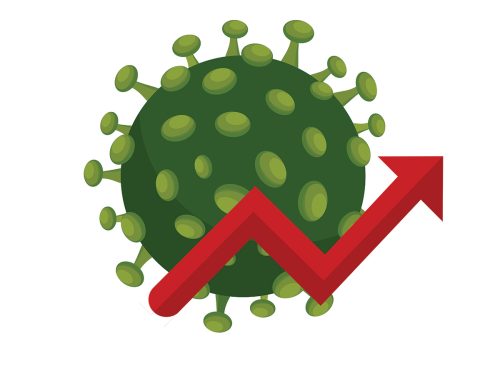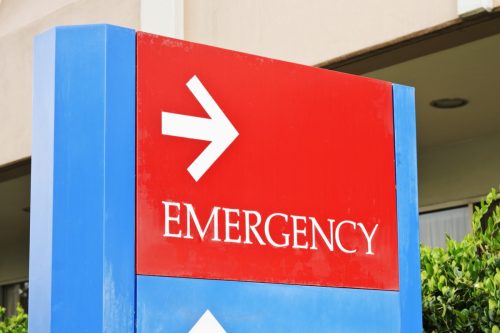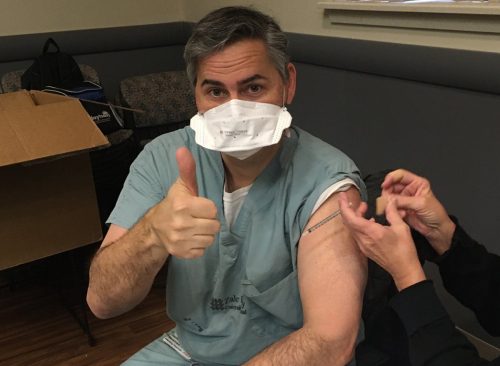I’m A COVID Expert and This is How I’m Saying Safe
Darren Mareiniss, MD, FACEP, emergency medicine physician, reveals how he is protecting himself.

The recent uptick in Covid-19 cases has the country concerned. While half as many in the same period of 2022, hospital admissions for Covid increased by about 16 percent in the week ending Aug. 26. Many of us have gotten used to pre-pandemic life, traveling, dining indoors, going to concerts and movies, and walking around indoor spaces mask-free. However, with the resurgence of the virus, along with an infectious new strain, should we be a little more cautious? Newsful spoke to Covid expert Darren Mareiniss, MD, FACEP emergency medicine physician, to find out exactly how he is living now.

According to Dr. Mareiniss, Covid cases are in fact on the rise. “We saw uptick in covid cases in the last few weeks,” he says. “The new EG.5 will likely be the dominant strain.”

“Thankfully, we have not seen a huge number of cases and the vast majority are not seriously ill. It’s a welcome change from the early years of the pandemic.”

One precaution Dr. Mareiniss is taking? He wears a mask when working in the Emergency Department, “particularly with febrile patients or individuals with upper respiratory symptoms,” he says.

He also continues to protect himself with antibodies. “I keep updated with vaccinations,” he says.

During the pandemic, the ER doctor always masked up while indoors. “However, as the virus is pretty much endemic at this point, I don’t typically mask indoors,” he explains.

There is one case where he will mask up: If “it’s very crowded,” he says.

Another pandemic practice he reinstates during surges? “When cases increase locally, we try to avoid indoor dining,” he says.

In general, he is not a strict as he was during the worst part of the pandemic. “When numbers are low, it’s business as usual.”

The Centers for Disease Control and Prevention (CDC) recently estimated that the strain, EG.5 represented 20.6% of cases of COVID-19 in the United States at the end of the third week of August, making it the prominant SARS-CoV-2 strain.

Research has found that EG.5 does not cause more severe COVID-19 cases, with classifying its level of risk for severe disease as low. “Several countries with rising EG.5 prevalence have seen increases in cases and hospitalizations, although at present there is no evidence of an increase in disease severity directly associated with EG.5,” the report stated.














